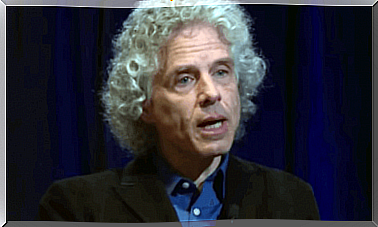Techniques For Counseling In Psychotherapy

It is important that therapists learn techniques for counseling. Psychologists and psychotherapists must therefore implement them in their sessions. They learn these just as they learn psychological techniques.
The concept of therapeutic relationship came from the psychodynamic model introduced by Bordin a number of years ago. It is a must during the treatment if you really want it to work.
There are three components to a therapeutic relationship:
- The relationship between the patient and the therapist is determined by the emotional tone and the mutual cooperation.
- They must also agree on the goal they want to achieve.
- The agreement must achieve the stated goals.
Some researchers, such as Carl Rogers and his humanistic psychology, suggest that the following ingredients should be present in all therapies:
- Authenticity and congruence.
- Unconditional acceptance of a patient and empathy towards the person.
In fact, Rogers believed that these components were necessary for change to occur.
In addition to the important alliance, there were also other skills that were important for the creation of the therapeutic relationship.
One of the most important skills that a therapist can have is the ability to establish strong bonds with the patient.
Important advice for therapists

A study by Sloane et al. from 1975 addresses the following variables, which they consider important:
- The therapist’s personality
- The ability to listen
- A therapist’s way of gradually encouraging the patient to do what he thinks he cannot
- The ability to speak in a way that the patient understands
- Helps the patient to understand himself
Other skills and techniques for counseling
Other authors such as Ackerman SJ and Hilsenroth MK (2003) reviewed publications on this topic and realized that the following characteristics are important:
- Flexibility. The way the patient adapts to the situation and the patient he has in front of him.
- Experience. How the therapist presents his clinical experience.
- Honesty. Does the patient think the therapist is honest?
- Respect. Does the therapist respect the patient’s values and how the patient communicates?
- Loyalty. The therapist is reliable.
- Self-confidence. The patient feels that the therapist knows what he is doing.
- The therapist shows an interest in the patient and the patient’s problems.
- Attention. The therapist is aware of what happens during the session. In other words, the patient’s verbal and non-verbal manifestations.
- Vicinity. The patient experiences a closeness.
- Heat. The therapist is friendly.
- Open minded. The therapist understands and accepts other approaches.
It can be stated that there is a lot of information regarding the importance of the therapist’s characteristics in relation to the treatment results.
Some studies indicate that the effectiveness of treatment is greater when these occur. Otherwise the opposite happens.
What happens during therapy sessions?

Some studies have shown that the first session, when a patient and a therapist meet for the first time, is of great importance.
The therapists who find it easier to express themselves and analyze the patient find it easier to make the patient want to come back.
If you isolate the factors outside of treatment, such as the patient’s finances or the distance he or she must travel to participate, most experts agree on two fundamental reasons that explain the dropout:
- On the one hand, we have the therapist’s personal characteristics and the lack of interest in the proposed treatment.
- On the other hand, the patient may think that he has improved to the point that he does not need to continue.
When it comes to dropouts, studies have shown that the therapist’s verbal abilities affect the success of the treatment, to the extent that the number of dropouts is significantly lower among therapists who have good abilities.
Conclusions regarding the therapist’s techniques for counseling
It is important that the therapist learns to use his skills in therapy.
It is not enough to just have knowledge of the subject, but you must also put them into practice, know how to present the subject and be able to modify approaches from patient to patient.
Here it is important to be experienced.









